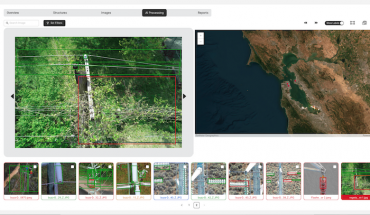AI vs. Wildfires: Protecting Canada’s Power Grid in a Changing Climate
By Yasmin Ranade
As wildfires intensify across Canada and environmental threats put 24/7 power access at risk, AI is stepping up to protect the energy grid. Companies like Buzz Solutions are helping utilities modernize grid inspections, boost storm resilience, and reduce wildfire risk with advanced predictive technology.








